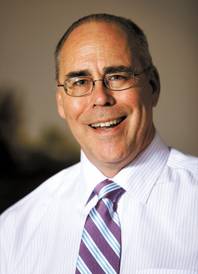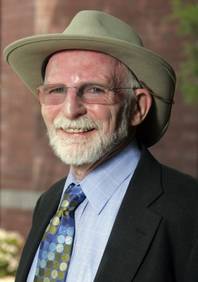Friday, Sept. 3, 2010 | 2 a.m.

UNLV President Neal Smatresk

Milton Glick
Sun Coverage
Sun archives
- Board of Regents backs call for bigger higher education budget (8-28-2010)
- Board of Regents asks for increase in state funding (8-27-2010)
- Higher education wants bigger slice of state budget pie (8-24-2010)
- State education officials fear deep cuts for public schools (6-14-2010)
- $2.5 billion state budget deficit: ‘Best-case scenario’ (4-23-2010)
- Regents umbrella will help shield higher education from budget cuts (3-20-2010)
- Even UNLV’s nursing school steels for budget cuts (3-3-2010)
- Gibbons: School districts should brace for 10 percent cuts (2-2-2010)
- College students band together, rally against budget cuts (1-22-2009)
- Chancellor calls Nevada schools a ‘disaster’ (1-23-2009)
- UNLV fundraising campaign falls short, so deadline extended (12-18-2008)
- Emotional farewells at Regent’s meeting (12-5-2008)
- Rogers to budget cut protestors: Glad you’re here (12-4-2008)
Higher education in Nevada has always felt like a poor relation in a state that seems suspicious of the need for colleges and universities.
Now, with more and deeper budget cuts looming, it is beginning to feel even more threadbare and unloved.
Gov. Jim Gibbons wants the Nevada System of Higher Education to cut another 10 percent from its budget to help the state address its budget crisis.
But enough is enough, higher education officials say.
State spending on higher education has dropped 28 percent from 2007-09, the peak two-year budget, to $954 million in the current budget cycle.
What does that mean for students, teachers and the institutions?
At UNR, among other things, it means you can no longer major in German, even though much research literature in, say, physics, was written in German. Albert Einstein published his theory of relativity, for example, in the Annalen der Physik.
A student can still get a passing knowledge of German in the few remaining classes, but it complicates future academic life if he or she needs more.
“German historically is part of the core of what a university does,” UNR President Milton Glick said.
Like UNR, UNLV has cut only programs and majors on the decline, such as the Marriage and Family Therapy Department and the Center for Health Sciences Research. Students are a large source of budget dollars through tuition and other fees, and cutting big-enrollment programs doesn’t save money.
“You could quickly drive yourself into a death spiral,” UNLV President Neal Smatresk said.
Both institutions have scrimped on other things. Most vacancies go unfilled, administrators double up on jobs, carpenters repair less, custodians clean less. The goal is to avoid laying off tenured faculty, who have the right not to be dismissed without cause.
“A good faculty pays for itself many times over” through the ability to attract federal and other research grants and help recruit other good faculty, Smatresk said. “They’re the geese that lay the golden eggs.”
But because of two recent rounds of budget cuts, and possible sterner cuts when the Legislature convenes in February, Smatresk said, “the faculty are left thinking: ‘We’re not sure Nevada loves us.’ ”
The Board of Regents seems headed for a clash with Gibbons and perhaps the Legislature over budget plans.
In the 2009-11 budget, education spending is about 55 cents of every $1 of the general fund. About 15 cents goes to the university system and nearly 40 cents goes to K-12 education, according to the state budget director’s office.
The state is facing a $3 billion deficit in its $6.5 billion budget for 2011-13, or almost all of the $3.6 billion spent on education.
Gibbons has asked all state agencies to submit 10 percent budget cuts for the 2011-13 budget cycle. But unlike most state agency chiefs, the regents are elected, not appointed by the governor. The board has always regarded itself as an independent steward of higher education.
In seeming defiance of Gibbons’ call for cuts, the regents a week ago voted 11-1 for a nearly 25 percent increase — or $1.19 billion — in state spending for higher education.
The dissenting regent, Ron Knecht of Carson City, said “expecting an increase at this point would be the height of self-absorption.”
Since the 2001-03 budget, spending on higher education has risen nearly 40 percent, according to Jeremy Aguero, an analyst with Applied Analysis of Las Vegas.
With that said, the university system has “clearly borne a disproportionate share of the state’s budget cuts,” Aguero said.
The budget the regents approved, including money from tuition and other fees, will rise just 3 percent to $1.65 billion. The 25 percent increase requested by the regents refers only to the state’s contribution. Nearly $185 million in one-time-only federal stimulus money will be missing in this budget cycle.
Moreover, taking into account inflation and the resulting reduction in the power to buy goods and services, the 3 percent budget increase almost vanishes.
Like Nevada, the university system has grown rapidly. In the past quarter century, enrollment has grown by 2 1/2 times to nearly 114,000 students in 2009.
Assemblywoman Sheila Leslie, D-Reno, is sympathetic to university concerns but spoke bluntly.
“If the system is going to collapse, let’s talk about it,” she said.
“The public is not going to support new taxes unless they fully understand the consequences of what budget cuts are going to be.”

Join the Discussion:
Check this out for a full explanation of our conversion to the LiveFyre commenting system and instructions on how to sign up for an account.
Full comments policy